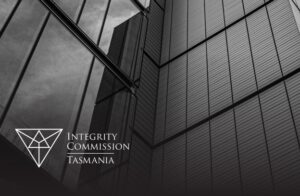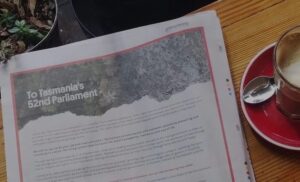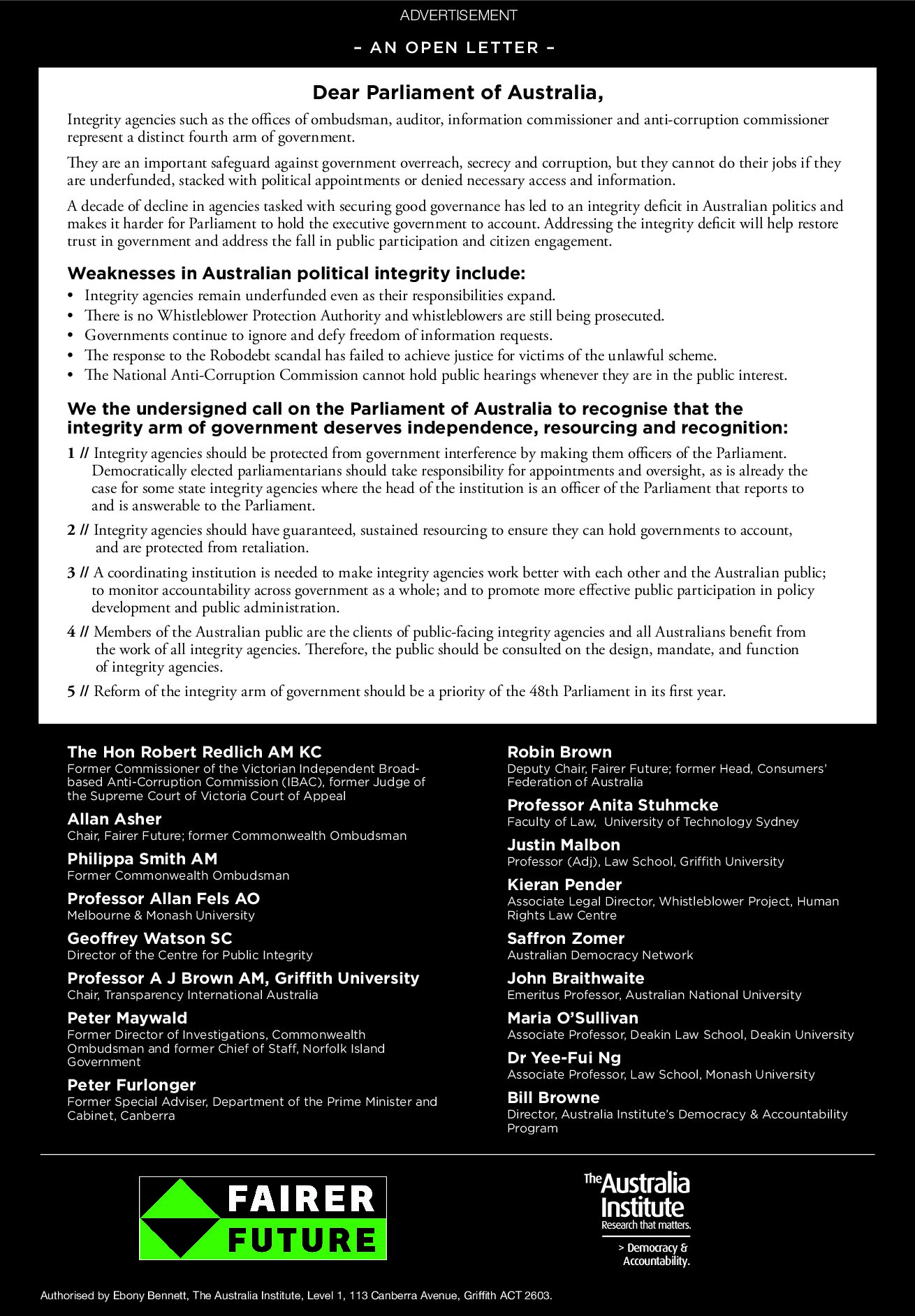Almost half of Tasmanians surveyed (48.5%) distrust the Tasmanian Integrity Commission’s ability to uncover and prevent misconduct in public administration, according to Australia Institute research. Only 34% trust the Integrity Commission’s ability to uncover and prevent misconduct.
Is it any wonder, given the inability of the Tasmanian Integrity Commission to hold the state government to account? It’s a toothless tiger. The Commission has not only been starved of funding, but it lacks adequate jurisdiction, conducts investigations in secret and writes reports that are hidden from the public.
The Australia Institute polled Tasmanians on their perception of the Tasmanian Integrity Commission in late June, after the Integrity Commission revealed it was not investigating key concerns from the state election.
Thankfully, the Commission’s problems with jurisdiction, secrecy and lack of resources can all be solved.
On the question of jurisdiction: Tasmanians watched on in shock during the 2021 State election, when it was revealed that Adam Brooks was under investigation by Tasmania police over ammunition storage offences, charged with unlawful possession of a weapon and explosives in Queensland and had allegedly used fake identities on online dating sites to form relationships with women.
Even if it wanted to, the Tasmanian Integrity Commission was unable to investigate if there was anything improper in Premier Peter Gutwein’s handling of the preselection, support and resignation of Brooks because it was outside the scope of its jurisdiction. Once the election was called, Gutwein was no longer a member of Parliament, and therefore not a public officer – the only kind of person the Integrity Commission can investigate.
The Greens tried to address this loophole by amending the Integrity Commission Bill. This was supported by Labor and Independent MP, Kristie Johnston, but was defeated by the government.
Another example of inadequate jurisdiction is provided by the Integrity Commission’s decision not to pursue an investigation into 2018 Liberal Party election donations and funding promises. Liberal Party lawyers challenged the jurisdiction and scope of the investigation, risking a cost blow out if the investigation were to continue.
So, what is the best course of action to build trust in the Tasmanian Integrity Commission’s ability to do its job?
Firstly, the jurisdiction of the Integrity Commission needs to be expanded. Any person that adversely affects or could adversely affect, directly or indirectly, the honest or impartial exercise of public administration should be able to be investigated by the Integrity Commission. This is in line with the principles developed by the former judges on the Australia Institute’s National Integrity Committee.
There is a culture of secrecy in the Tasmanian Integrity Commission.
Chief Commissioner Greg Melick has stated that there were no findings of misconduct in the initial investigation into the 2018 election. But there is no way for Tasmanians to judge the issue for themselves because the draft report on the investigation has not been released to the public.
The Commission’s investigations and reports are often inaccessible to the public, and, despite the Commission having the power to hold public hearings, it has never done so.
Corruption thrives in the dark. Public hearings help expose corruption, increase public trust and make investigations more effective. That’s why the Australia Institute’s second recommendation is that Commission investigations and reports be made more publicly accessible and that the Commission use its power to hold public hearings.
Thirdly, the Commission needs to be adequately resourced.
In 2014, the Commission’s funding was cut by 20%, with the Commission’s then Chief Executive Director Diane Merryful stating that it would cause the Integrity Commission to either stop the education about and prevention of misconduct, or to stop investigating complaints altogether. Hon Murray Kellam AO, when finishing his term as Chief Commissioner, described this lack of financing as a “significant obstacle” and that it gave a “‘green light’ to corruption in the state”.
The Tasmanian Integrity Commission already received the least funding for a body of its kind in the nation before its funding was cut by 20%. If the government fails to commit substantial additional funding in the next budget it will show the government is not serious about tackling corruption.
To rebuild trust in government and its checks and balances, we need a strong anti-corruption watchdog. We need it to be adequately funded, use its existing powers effectively, hold full inquiries with public hearings and release information publicly. It also needs to be able to investigate anyone trying to interfere with good public administration.
Between the Lines Newsletter
The biggest stories and the best analysis from the team at the Australia Institute, delivered to your inbox every fortnight.
You might also like
Underfunded, toothless and lacking transparency – time for a new era of integrity in Tasmania
As Tasmania’s newly elected politicians jostle to form government, new analysis from The Australia Institute shows that a deal to address integrity would be popular among election-weary voters.
Open Letter to the Tasmanian Government
The Australia Institute and 30 other organisations from around Tasmania have published an open letter with 10 asks for the environment from whomever forms Tasmania’s next government. When cross-benchers and major parties have struck successful power-sharing agreements elsewhere, they covered policy as well as procedure, making now the ideal time for progress.
Open letter calls on newly elected Parliament to introduce Whistleblower Protection Authority, sustained funding for integrity agencies to protect from government pressure.
Integrity experts, including former judges, ombudsmen and leading academics, have signed an open letter, coordinated by The Australia Institute and Fairer Future and published today in The Canberra Times, calling on the newly elected Parliament of Australia to address weaknesses in Australian political integrity. The open letter warns that a decade of decline in agencies


